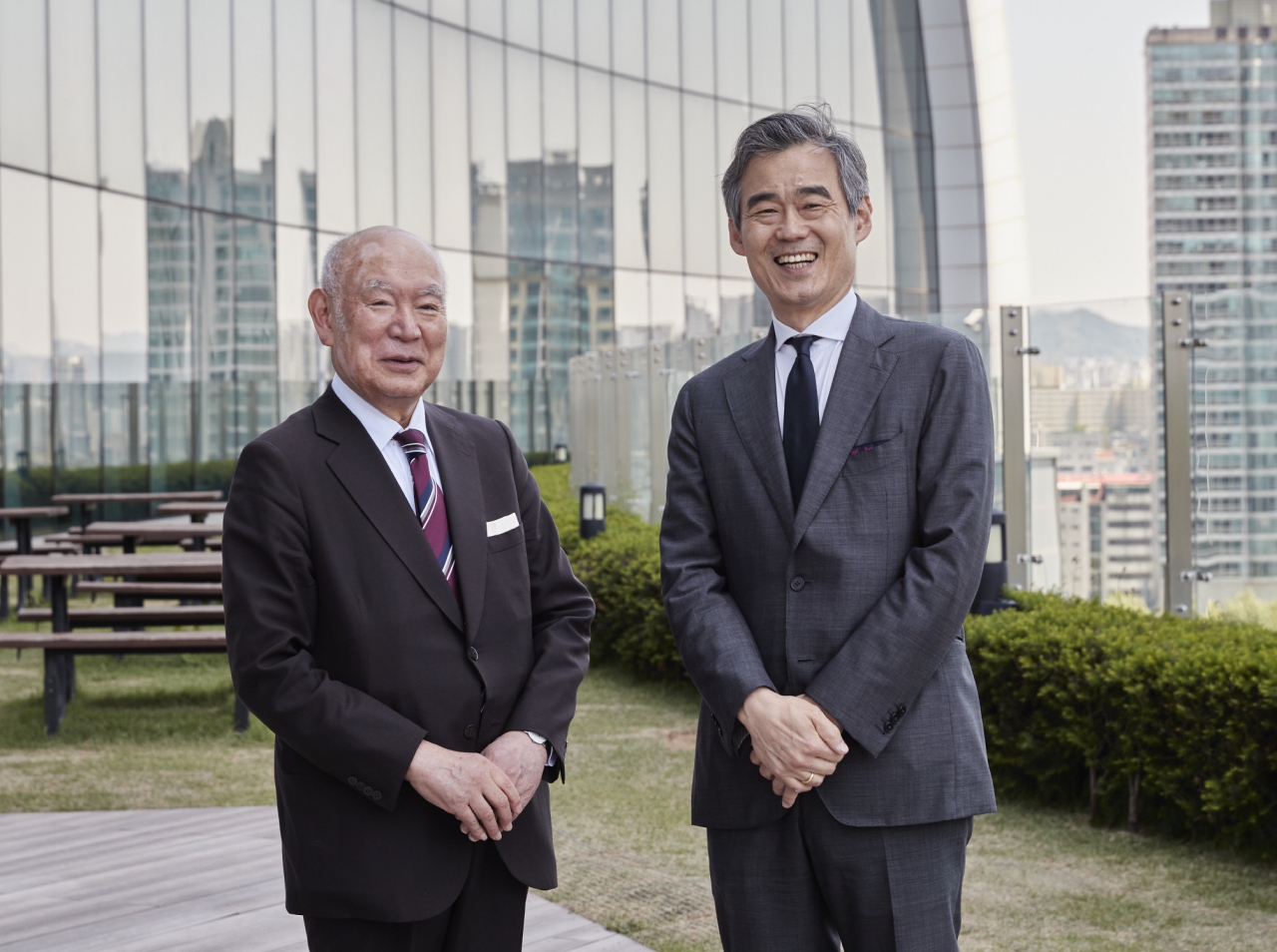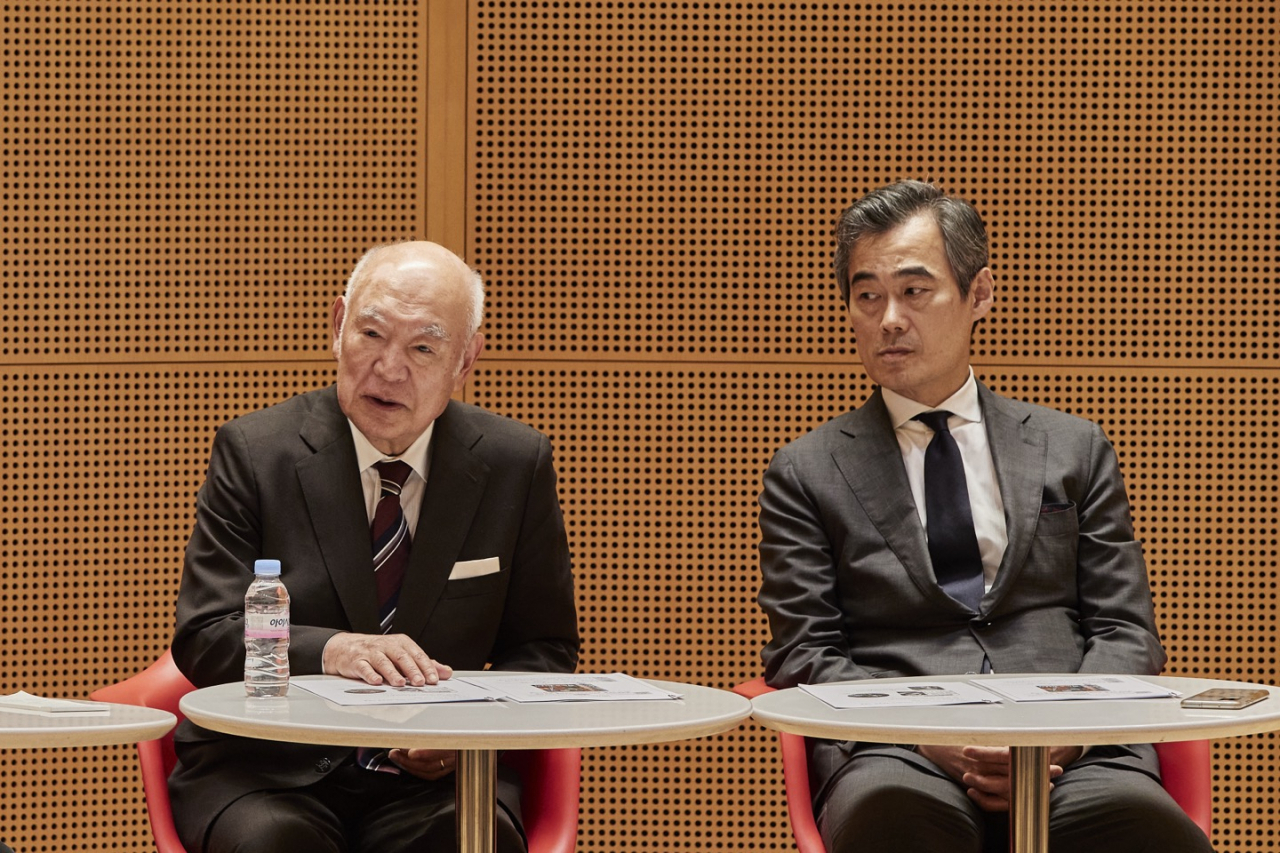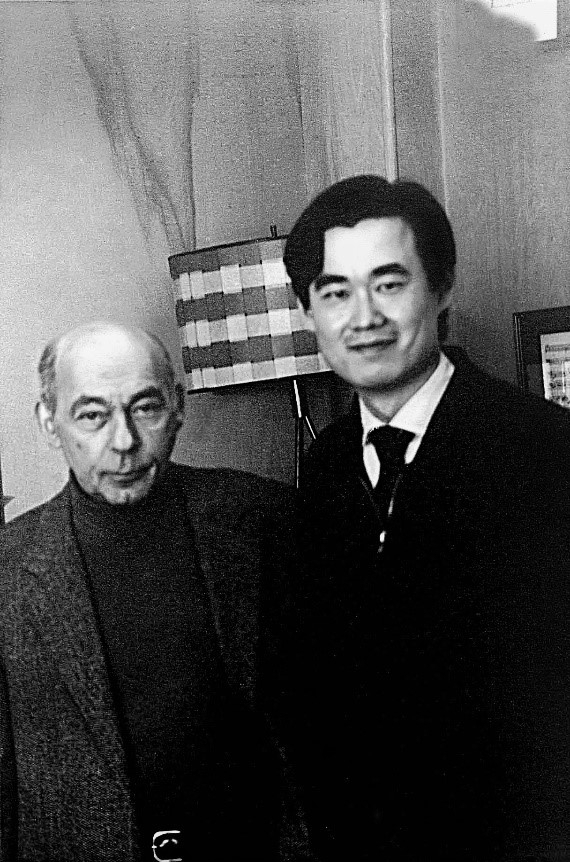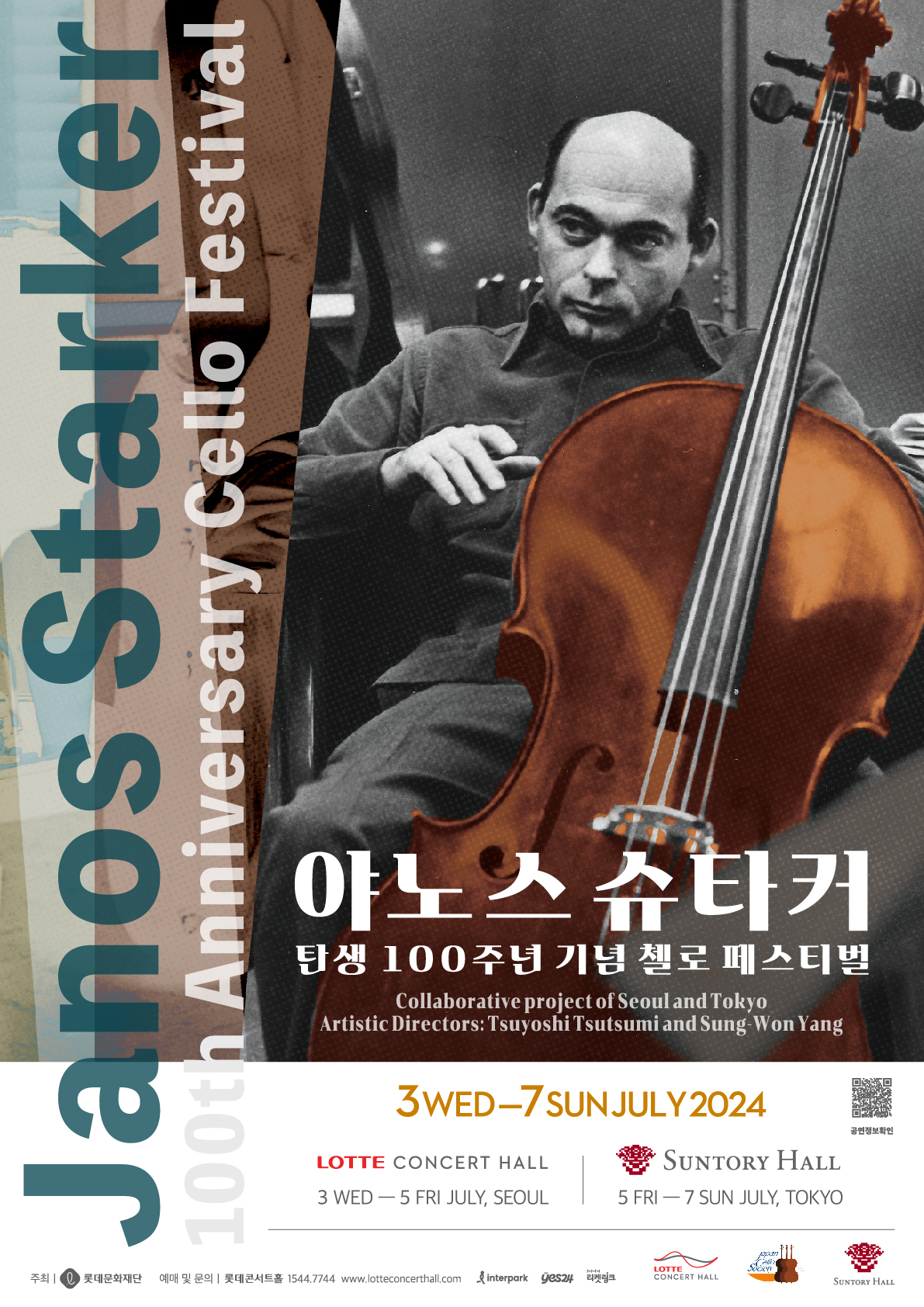 |
Cellists Tsuyoshi Tsutsumi (left) and Yang Sung-won pose for photos at the Lotte Concert Hall in Jamsil, Seoul, May 14. (Lotte Concert Hall) |
In celebration of late cellist Janos Starker’s 100th birthday and his legacy, two of Starker’s students, Tsuyoshi Tsutsumi and Yang Sung-won, who both went on to have successful careers, will bring together more than 20 of Starker’s pupils and their pupils for a festival in Seoul and Tokyo in July.
Japanese cellist Tsutsumi, president of Suntory Hall in Toyko and a professor, and South Korea's Yang, the artistic director of Music in PyeongChang and also a professor, joined forces as the artistic directors of the Janos Starker 100th Anniversary Cello Festival.
Twenty-five years apart, Tsutsumi, 81, and Yang, 56, both said that Starker’s teaching went beyond just helping them develop their techniques.
Tsutsumi began studying with Starker in 1961 and Yang in 1987 at the Indiana University Jacobs School of Music, where the Hungarian-American cellist, who left over 150 recordings, taught from 1958 until his death in 2013.
When Tsutsumi asked Starker during his first lesson why he was teaching when he was so busy with concerts, the Japanese cellist was told by Starker that “Teaching and concerts are like two tires of an automobile, and if one of them lapses, it can not go on.”
Starker began teaching when he was 8 years old, when he was told and paid to practice weekly with a 6-year-old girl named Eva Czako, according to his autobiography, “The World of Music According to Starker.”
“When teaching, he could have taught things that would provide immediate results. However, my teacher always reminded me to look at things from a medium to long-term perspective and to never forget that what we are teaching is art. He emphasized that our job as performers is not to be entertainers but to be artists representing the heritage of humanity. This teaching always served as a reminder for us,” Yang told reporters during a press conference on Tuesday.
 |
Cellists Tsuyoshi Tsutsumi (left) and Yang Sung-won attend a press conference at the Lotte Concert Hall in Jamsil, Seoul, May 14. (Lotte Concert Hall) |
Tsutsumi recalled the remarks Starker made about Korea decades ago: “Yoshi, look to Korea for the future."
"South Korea is one of the top countries for classical music, with so many wonderful artists, musicians and concerts and his prediction was so right, and I'm very happy,” Tsutsumi, who also teaches at the Korea National University of the Arts School of Music as a visiting professor, said.
Starker made his first visit to South Korea in November 1967 when he took the stage with the KBS Symphony Orchestra, with conductor and pianist Lim Won-sik. Since then, he made many visits to the country.
 |
Cellists Janos Starker and Yang Sung-won are seen in this photo taken in 2000. (Lotte Concert Hall) |
Yang believes that Starker's many visits to the country that began in 1967 have contributed to South Korea's classical music scene.
“(Starker) first came to South Korea in 1967, the year I was born. It wouldn't have been possible if he didn’t do it for his mission as an artist. (He could have performed anywhere, and) was invited to one of the greatest concert halls in Europe,” Yang explained. “I truly believe that his visits played a crucial role in shaping South Korea’s classical music scene as it is today.”
For Yang, Starker’s concert on March 10, 1975 was an unforgettable one. “It’s not an exaggeration if I say it was a life-altering experience,” he said. Yang had been about 8 years old and in his second year of learning the cello.
Cohosted by the Lotte Foundation for Arts, Suntory Hall and the Japan Cello Society, the festival will take place July 3-5 at Lotte Concert Hall and July 5-7 at Suntory Hall.
The festival will kick off with Bach’s Six Cello Suites, BWV 1007–101 on July 3. On July 5, which is Starker’s birthday, there will be three concertos, which were Starker’s favorites.
As the South Korean portion of the festival ends, the Japanese part will begin on the same day with a special speech by Tsutsumi, which will be livestreamed at the two concert halls, and a concert with Brahms’ Three Sonatas for Cello & Piano.
Michiaki Ueno and Han Jae-min, two emerging young cellists representing their respective country, will perform Zoltan Kodaly’s Sonata for Solo Cello Op. 8. Starker made 4 recordings of the piece.
To highlight Starker's dedication to education, the festival will offer cello master classes by Gary Hoffman and Tsutsumi in Seoul, and by Marc Coppey, Ole Akahoshi and Yang in Tokyo.
Participating cellists in the festival also include Santiago Canon-Valencia, Elizabeth Dolin, Angel Garcia Jermann, Mark Kosower, Martina Schucan, Helga Winold, Bae Il-hwan, Han Dong-yeon, Jang Hye-ri, Kim In-ha, Lee Jae-eun, Lee Hyun-jung, Park Lee-Lyung, Woo Mi-young, Makito Nishiya and Susumu Miyake.
 |
Poster for the Janos Starker 100th Anniversary Cello Festival (Lotte Concert Hall) |







